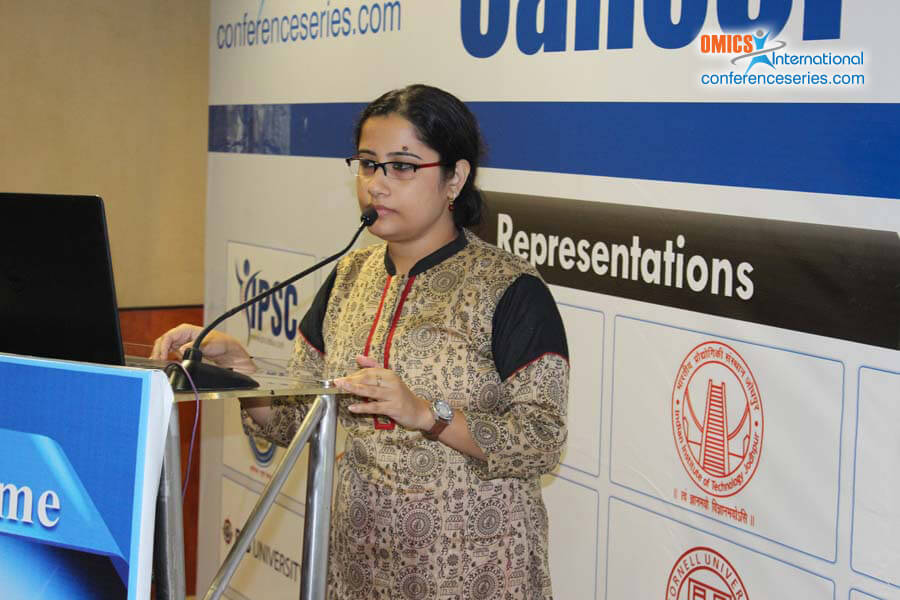
Sayantani Karmakar
University of Kalyani, India
Title: A novel inhibitor of poly (ADP-ribose) polymerase-1 (PARP1)
Biography
Biography: Sayantani Karmakar
Abstract
Acridines are important for their diverse biological activities. We present here the poly (ADP-ribose)-polymerase1 (PARP1) inhibitory activity of an aryl-acridine (ACPH). The nuclear enzyme PARP1 is involved in DNA repair and inhibition of its activity potentiates cell killing by different agents. Some PARP1 inhibitors are therefore used in conjunction with chemotherapeutic agents in cancer therapy to potentiate their action. Using bioinformatics docking tools the binding of ACPH to human PARP1 was investigated. ACPH could bind to PARP1 by interacting with the catalytic important amino acids at its NAD+ binding pocket. In silico mutants created for some of the catalytically important amino acid residues revealed that ACPH could only bind to and inhibit those enzymes with PARP1 activity. The findings indicated that ACPH can be a potent PARP1 inhibitor. Post treatment with ACPH could sensitize both exponential growing and quiescent A375cells to killing after exposure to DNA damaging agent, possibly by inhibiting DNA repair. The intracellular NAD+ content of A375 cells were also assayed biochemically. NAD+ is the precursor for PAR formation in cells after DNA damage; hence depletion of NAD+ is indicative of PARP activity in damaged cells. No depletion in NAD+ level was observed in DNA-damaged cells on post treatment with ACPH. These findings confirmed the PARP1 inhibitory activity of ACPH. The findings are important as it revealed for the first time PARP1 inhibitory activity in an acridine derivative. Considering the importance of PARP1 inhibitors in cancer therapeutics, the findings could be important for new drug development.


